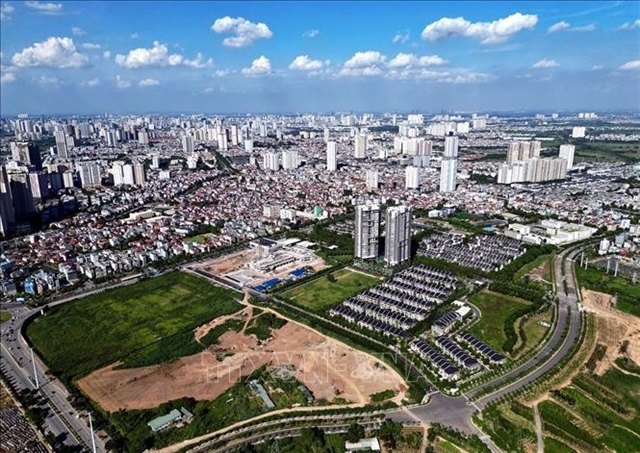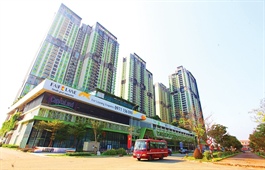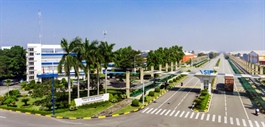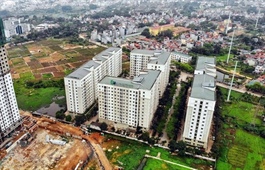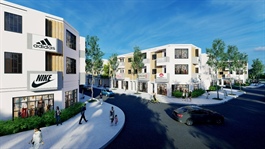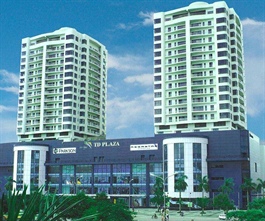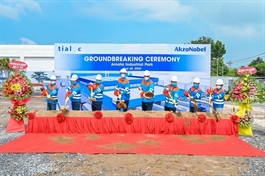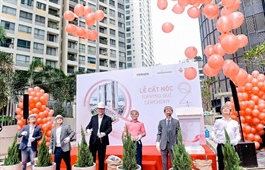Foreign access urged for holiday property
Foreign access urged for holiday property
The Ministry of Construction has sent a proposal to the government to permit non-national individuals and organisations to purchase holiday property in Vietnam.
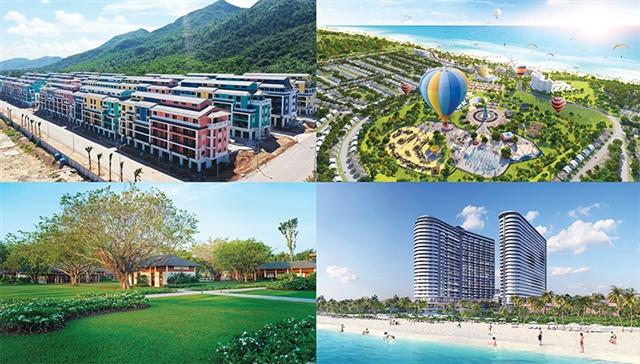
An array of provinces provide potential buyers with unlimited beauty
|
Under the current legal framework of the Law on Housing 2014, while foreign buyers are now permitted to own residential property in Vietnam only, they cannot buy other property types such as second homes or holiday properties, despite the high demand shown for it. Vietnam is one of few countries in the region which have not yet permitted this type of purchase. Others such as Malaysia, Singapore, and Thailand have been providing incentives to woo foreign buyers for such property types.
The main reason for this, according to DKRA Vietnam’s research and development director Nguyen Hoang, was because non-national involvement in the purchase of some projects could impact national security. The Ministry of Construction (MoC) however believes that the proposal would become one of several long-term solutions that could reduce the stockpile in the holiday market while the domestic investment capital flow is limited.
Hoang from DKRA said if this proposal is approved, it could be an active solution to push up the vacation property segment in Vietnam with many added benefits such as diversifying demand for the market and attracting more investment from foreign individuals.
Apart from that, if the government permits foreign buyers to own such property in Vietnam, developers will be forced to improve themselves in terms of transparency and more effective operation and management, in order to meet the strict requirements from international owners.
The United Nations’ World Tourism Organization last year recognised Vietnam as one of the world’s 20 fastest-growing travel destinations. Pre-pandemic, Vietnam welcomed approximately two million foreign visitors in the month of January alone.
According to Michael Piro, COO of Indochina Capital, Vietnam is also continuing to attract foreign direct investment (FDI) despite the turmoil – in June alone, FDI attraction grew 3.1 per cent on-year. “This has led to a significant increase in interest from property buyers from China, Taiwan, South Korea, Japan, and Hong Kong – markets that are top foreign investors and key tourism source markets for Vietnam,” said Piro.
Other advantages to lure overseas buyers into Vietnam include attractive and competitive land prices, while rental yields remain high. Average rental yield for high-end, luxury condominiums in Ho Chi Minh City is twice as high as that in Hong Kong and Shanghai, and about 2.5 percentage points higher than in Bangkok.
Buyers have a plethora of choice in terms of location for their second homes in Vietnam, with stunning landscapes, vibrant cuisine, and hospitable populations making the country a perfect destination for such a venture.
“Allowing foreign investors to enter the hospitality market can help boost the quality of offerings, which will increase funding in tourism infrastructure and improve investor returns,” Piro said.
He added that Indochina’s experience in developing branded residences as second homes in many provinces has shown that motivated buyers are willing to invest through long-term lease contracts, if they cannot acquire land use rights certificates.
Thailand successfully increased the number of returning visitors by raising foreign home ownership levels, and Piro believes Vietnam can trigger a similar effect by easing regulations to allow investors to own hospitality products such as condotels and villas, which would act as their holiday or second homes.
“To prevent threats to national security due to control over large land areas, interventions such as imposing a minimum value on the price of hospitality properties can be set to avoid foreign dominance in the affordable segment, and require all foreign-owned properties to be leased back into a mandatory rental pool managed by the operator,” he added. “Akin to residential products, foreign ownership of hospitality property can be kept limited to projects from experienced developers.”
Figures from the Vietnam National Real Estate Association show that holiday and second home properties have been developing strongly over the last five years. The whole market is estimated at $23 billion capital value with hundreds of thousands of products – with more than 82,000 tourism apartments, 28,000 villas, and more than 15,000 townhouses.






